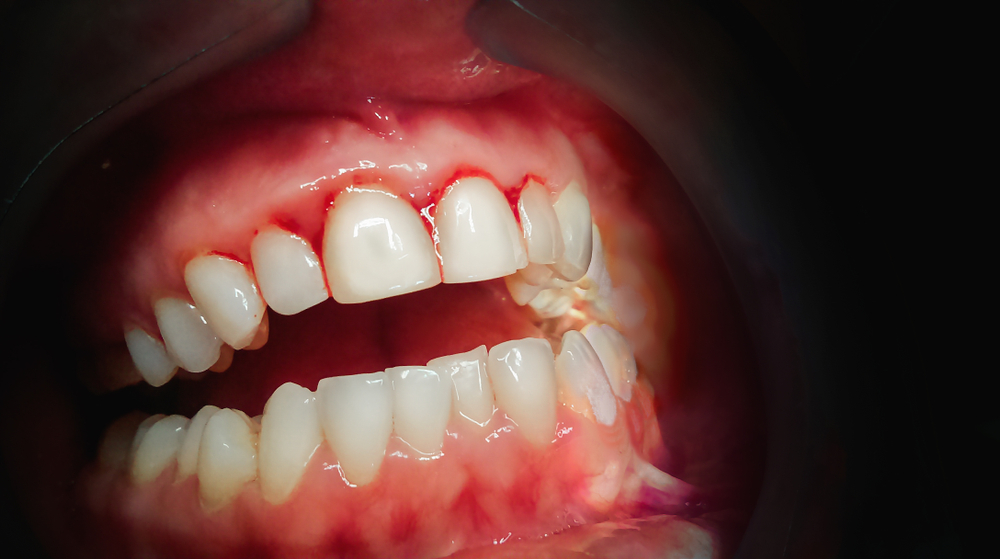
Dental Defence Union experts, Greta Barnes, lead claims handler and Debbie Herbst, dentolegal adviser look at periodontal claims
Periodontal disease was included in over 200 claims notified to the DDU in 2016-17, and was the subject of approximately 10% of general dental practitioner claims notified in 2017.
Claims regarding periodontal disease often include allegations of avoidable tooth loss and the need for replacement.
Because many teeth can be affected by the disease, they are often some of the most complex claims to investigate and most expensive to settle – some cases exceeding £100,000.
The good news is if DDU members face a claim they can be assured of expert support from claims handlers and dentolegal advisers, who understand how stressful the process is and the importance of mounting a robust defence whenever possible.
Nevertheless, there are some steps dental professionals can take to minimise the risk factors that can lead to a poor outcome for the patient and the increased risk of a negligence claim being made.
Allegations
The majority of periodontal disease claims centre on allegations of failure to diagnose, monitor, and treat the disease in an appropriate and timely manner. Common allegations include:
• Failure to undertake appropriate diagnostic (clinical and radiographic) assessment
• Failure to obtain and record accurate clinical information, such as basic periodontal examination (BPE) scores, and associated information, such as pocket depths, plaque scores, bleeding scores and other relevant periodontal indices
• Failure to report periodontal bone loss indicated on radiographs
• Failure to inform the patient of their periodontal condition and treatment options
• Failure to offer and initiate appropriate advice and treatment in accordance with clinical and radiographic findings.
To avoid allegations that focus on problems with diagnosis, it is important for dental professionals to undertake, and record a clinical and radiographic periodontal assessment, and the resultant diagnosis in accordance with current guidelines.
Informing patients
Patients often allege they were never informed of the existence or extent of periodontal disease and what it could mean for their long-term oral health.
It is vital patients are fully informed and updated about their current periodontal health status and treatment options, in language they can understand.
It is also important that your discussions with them are recorded in the clinical notes and reflected in their treatment plans.
Case example
In one case, a DDU member who treated a patient for more than 25 years faced an allegation of failing to use reasonable skill and care in the screening, diagnosis, monitoring and treatment of periodontal disease, and caries, over that entire period.
We investigated the case and obtained independent expert advice, but were, unfortunately, unable to refute the allegations made and – with the dental professionals’ agreement – we entered into settlement negotiations. The case had a potential value of more than £120,000, although we agreed to a lower sum.
Calculating compensation
Periodontal claims often include allegations of poor management going back many years and involving multiple treating clinicians.
When investigating such cases, the changes in knowledge, guidance and standards of treatment during the period in question are taken into account, in respect of each clinician.
Periodontal claims settlements often include compensation for teeth that have been avoidably lost, are likely to be lost or have a reduced prognosis.
Costs may relate to future periodontal care to seek to retain teeth, and replace those that were lost or are likely to be lost.
Replacement of teeth may include removable or fixed options, such as bridges or implants, and associated costs, such as bone grafts. Other costs may include loss of earnings, as well as travel to and from appointments for ongoing care.
Because of the presence of periodontal disease, other necessary treatment may be more likely to fail and also make the periodontal disease worse; for example, the need for orthodontic treatment or restorative treatment on periodontally compromised teeth.
Patients have a key role to play in looking after their oral health.
If patients’ oral hygiene is poor or they continue to smoke, this will be taken into account when settling a case. In such circumstances, it may be possible to argue that costly remedial treatment, such as implants, is inappropriate; thereby reducing the settlement cost.
Minimising risks
To help dental professionals reduce the risk of a periodontal claim, the DDU recommends the following:
• Follow current guidance to make sure your treatment is evidence-based – for example, the British Society of Periodontology’s guidance on the 2017 classification of periodontal diseases. Record all your examination findings in the patient’s clinical notes, including their BPE scores, other relevant indices and the discussions about their periodontal health
• Explain to the patient if they are at risk of periodontal disease and how they can help protect themselves, such as good oral hygiene, more frequent visits to the hygienist and the importance of stopping smoking. Make a note of the conversation and any information leaflets provided
• If you decide the patient’s gum disease only requires monitoring and advice, explain this to the patient and record your discussion and their consent to your treatment plan in the records. Record the periodontal condition – such as pocketing and loss of attachment at each visit
• When obtaining consent for periodontal treatment, take time to explain the risks, benefits and alternatives. Make a careful note of your discussion and the patient’s agreement
• Recognise the limits of your own clinical skills. Be prepared to offer referral to a specialist if the patient’s condition does not improve.
The DDU and BSP have developed a free CPD E-learning resource for dental professionals available at www.theddu.com/learn. To keep up with the latest dentolegal news, guidance and advice, follow the DDU’s Twitter and Facebook pages or download the DDU member app.


